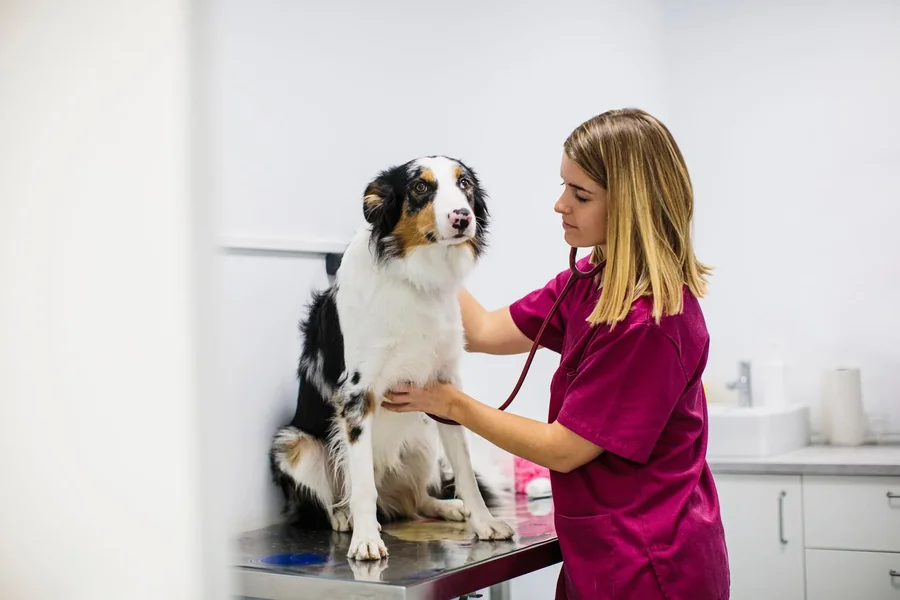Your pet relies on you for everything, from food to health. Recognizing when they need urgent help is crucial. Pets can’t speak, so you must watch for signs they need a veterinarian in Ogden, UT. Ignoring these signs can lead to serious issues. You might see changes in behavior, appetite, or movement. Each can signal a serious problem. You must take them seriously. You must decide when to rush to the animal hospital. Understanding these signs can save your pet’s life. Immediate action shows your commitment to their well-being. Knowing what to look for ensures you get help at the right time. This knowledge protects your furry friend and gives you peace of mind. You can prevent long-term problems by acting swiftly. Always stay alert and ready to help. Your quick response can make all the difference. Prioritize your pet’s health and safety every day.
1. Difficulty Breathing
Breathing problems are a critical sign that something is wrong. Rapid breathing, wheezing, or gasping signal distress. These issues can indicate heart problems, respiratory infections, or allergies. If your pet struggles to breathe, seek help immediately. This response protects them from further complications.
2. Sudden Changes in Appetite or Thirst
Pets show their health through eating and drinking habits. Sudden changes in appetite or thirst can indicate illness. If your pet refuses food or drinks more water than usual, it’s time to consult a vet. These changes can signal diabetes, kidney disease, or infections.
3. Lethargy and Weakness
If your pet seems unusually tired or weak, this can be a serious sign. Lethargy often indicates pain, anemia, or infections. You should pay attention if your pet struggles to play or move. Their usual energy levels drop significantly, showing they need medical attention.
4. Vomiting or Diarrhea
Occasional vomiting or diarrhea occurs in pets. But frequent episodes or the presence of blood require immediate vet attention. These symptoms can cause dehydration and may signal poisoning or gastrointestinal issues. Quick action prevents serious consequences.
5. Change in Urination Habits
Monitoring your pet’s urination habits is essential. Difficulty urinating, increased frequency, or blood in urine is a red flag. These issues could indicate infections or kidney problems. Timely veterinary care prevents these conditions from worsening.
6. Unexplained Pain or Injury
Pain or visible injuries should never be ignored. Limping, whimpering, or avoiding touch shows discomfort. Pets may hide injuries, making it crucial to notice subtle changes. Seeking immediate care helps diagnose fractures, wounds, or internal injuries.
Comparison Table: Signs and Possible Causes
| Sign | Possible Causes |
| Difficulty Breathing | Heart problems, respiratory infections, allergies |
| Changes in Appetite/Thirst | Diabetes, kidney disease, infections |
| Lethargy and Weakness | Anemia, infections, pain |
| Vomiting or Diarrhea | Poisoning, gastrointestinal issues |
| Change in Urination Habits | Infections, kidney problems |
| Unexplained Pain or Injury | Fractures, wounds, internal injuries |
Understanding and recognizing these signs ensures prompt action. You can access resources like the American Veterinary Medical Association for more information on emergency pet care. Your vigilance and quick response provide the best chance for recovery. Keeping your pet safe and healthy relies on your awareness and timely decisions. Trust your instincts and prioritize their needs, ensuring a long, happy life for your furry family member.

